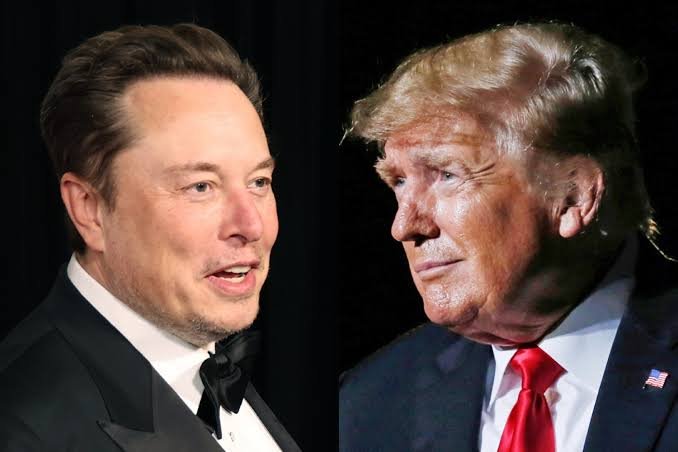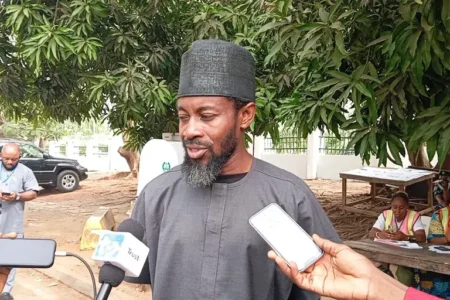President-elect Donald Trump announced Tuesday that Elon Musk and Vivek Ramaswamy will lead a new “Department of Government Efficiency” in his second administration.
“Together, these two wonderful Americans will pave the way for my Administration to dismantle Government Bureaucracy, slash excess regulations, cut wasteful expenditures, and restructure Federal Agencies,” Trump said in a statement.
The announcement of Ramaswamy and particularly Musk, who leads companies with existing, lucrative government contracts, raises immediate questions about potential conflicts of interest. It is not immediately clear how the department – which Trump said would “provide advice and guidance from outside of Government” – would operate, and whether a Congress even fully controlled by Republicans would have the appetite to approve such a massive overhaul of government spending and operations.
Trump had proposed the creation of a government efficiency commission as part of a slate of new economic plans that he unveiled in early September. At the time, he said Musk had agreed to lead it if he were to secure a return to the White House.
Trump’s statement Tuesday night quoted Musk as saying that “this will send shockwaves through the system, and anyone involved in Government waste, which is a lot of people!”
Ramaswamy separately responded on X with a slogan he often used during his presidential campaign to call for the elimination of federal agencies, writing: “SHUT IT DOWN.”
On the campaign trail, Trump pointed to his proposed government efficiency commission as a way to reduce government spending. “As the first order of business, this commission will develop an action plan to totally eliminate fraud and improper payments within six months,” he said in September. “This will save trillions of dollars.”
Ramaswamy, who previously challenged Trump in the Republican presidential primary before endorsing him in January, made reducing waste in government spending a key policy platform for his campaign.
Last year, Ramaswamy – who had promised on the campaign trail to eliminate the FBI, the Department of Education and the Nuclear Regulatory Commission, which would lay off thousands of federal workers in the process – released a white paper outlining a legal framework he said would allow the president to eliminate federal agencies of his choice.
Musk, for his part, said while supporting Trump on the campaign trail that he’d pitch a massive rollback of government regulations, of which he has long griped. The Tesla and SpaceX CEO has also floated an assessment system that threatens layoffs to wasteful employees and proposed offering generous severance packages to laid-off government workers.
Musk first suggested Trump form a government efficiency commission and appoint him to it in an August conversation between the two hosted on X. Trump responded, “I’d love it.”
A few days later, Musk posted on X an image of himself at a podium labeled Department of Government Efficiency and D.O.G.E., the name of Musk’s favorite meme and cryptocurrency. “I am willing to serve,” he wrote.
On Tuesday, he pledged on X that such an office would post all of its actions online for transparency and teased “a leaderboard for most insanely dumb spending of your tax dollars.”
The work of the department, Trump said in his statement, will end no later than July 4, 2026. “A smaller Government, with more efficiency and less bureaucracy, will be the perfect gift to America on the 250th Anniversary of The Declaration of Independence. I am confident they will succeed!” he said.
Doubts about cutting $2 trillion
Musk, who slashed staff after buying Twitter – now X – in 2022, has embraced the idea of being the “Secretary of Cost-Cutting,” as Trump called him in a Fox News interview last month.
Asked by Trump-Vance transition team co-chair Howard Lutnick at a rally last month how much he could cut out of the nation’s $6.5 trillion budget, Musk responded: “Well, I think we could do at least $2 trillion.”
“Your money is being wasted, and the Department of Government Efficiency is going to fix that,” Musk said at the Madison Square Garden rally in New York City. “We’re going to get the government off your back and out of your pocketbook.”
(The federal government spent $6.8 trillion in fiscal 2024, according to the Treasury Department.)
But experts have voiced doubts about Musk being able to slash anywhere near $2 trillion.
Speaking at The Economic Club of New York Tuesday, former Treasury Secretary Larry Summers said that Musk would be lucky to find $200 billion in federal budget cuts since the scope for curbing waste is limited.
Glenn Hubbard, an economist and former dean of Columbia University’s Business School, said it would be very challenging to slash that much spending if interest expenses, entitlement programs and defense were off limits.
“It’s just mathematically impossible to find $2 trillion,” Hubbard, a former chairman of the US Council of Economic Advisers in the George W. Bush administration, said at the Economic Club.
Trump and congressional Republicans have long pointed to combating waste, fraud and abuse as ways to save the federal government money. But that refrain is “often an excuse to do nothing,” Marc Goldwein, senior policy director for the Committee for a Responsible Federal Budget, told CNN when Trump first discussed creating a government efficiency commission.
The commission would have to be given a broad mandate to review the largest federal spending programs – Social Security, Medicare and defense – to be most effective, Goldwein said.
A main union for federal workers, who are already bracing for the likelihood of a purge during the second Trump administration, also blasted the idea of a government efficiency commission.
“Elon Musk and Donald Trump care about one thing: lining their own pockets. Not government efficiency, and certainly not making things better for everyday Americans,” American Federation of Government Employees National President Everett Kelley said in a statement in early September.









